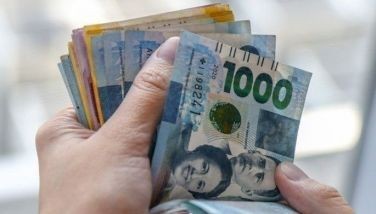Dole Phils plans blueberry farm in Sarangani
September 4, 2006 | 12:00am
ALABEL, Sarangani – Pineapple giant Dole Philippines is planning to develop an initial 20 hectares of blueberry farms in Sarangani.
"This would be the first blueberry farm of Dole in the country and for the farmers here in Sarangani. The farms to be developed will be in Maasim and Quiamba," said Sarangani Governor Miguel Rene A. Dominguez.
He said the blueberry production will partially supply the fresh and processed blueberry requirements of Dole Philippines which aside from growing pineapples, mostly through contract-growing arrangements, also produces high-value crops such as asparagus and lettuce.
Dominguez said the Maasim and Quiamba areas are suited for blueberry production because of their high elevation.
"We hope the initial venture would be successful so that we could immediately explore new areas for expansion," said Dominguez.
He said the blueberry production would fall under the local government’s ongoing "From Arms to Farms" program that targets former members of the Moro National Liberation Front as beneficiaries.
"What we are essentially doing is to provide alternative livelihood for combatants who gave up their arms. We act as conduits by providing them the proper environment for their ventures to prosper."
Currently, the Sarangani provincial government has already facilitated a contract-growing arrangement for pineapples between Dole and Sarangani farmers.
Dominguez said that there are already about 2,000 new hectares of pineapple plantations being developed. The target is to raise this to 5,000 hectares in the next two years.
"Farmers are establishing new pineapple areas at the rate of 25 hectares a day and that is really creating an impact in terms of creating new jobs and incomes. Many of these farmers were just subsistence farmers."
Previously, Dole said it plans to enter into new pineapple contract-growing arrangements with some 2,000 farmers based in Surallah and T’boli towns in South Cotabato and Maasim in Sarangani.
Company officials said they began assessing the suitability for pineapple growing of the prospective areas.
Last February, Dole launched an expansion program in Barangay Amsipit in Maasim through the contract-growing scheme.
Under this scheme, farmers avail of planting materials and direct technical assistance from Dole.
Dole, which operates some 8,000 hectares of pineapple plantations near its base in Polomolok town in South Cotabato, will identify and evaluate the suitable plantation areas.
Dominguez said pineapple farmers get a windfall of between P50,000 and P70,000 annually on top of their regular wages.
"With the blueberry production, we hope to do the same for our farmers," he said.
"This would be the first blueberry farm of Dole in the country and for the farmers here in Sarangani. The farms to be developed will be in Maasim and Quiamba," said Sarangani Governor Miguel Rene A. Dominguez.
He said the blueberry production will partially supply the fresh and processed blueberry requirements of Dole Philippines which aside from growing pineapples, mostly through contract-growing arrangements, also produces high-value crops such as asparagus and lettuce.
Dominguez said the Maasim and Quiamba areas are suited for blueberry production because of their high elevation.
"We hope the initial venture would be successful so that we could immediately explore new areas for expansion," said Dominguez.
He said the blueberry production would fall under the local government’s ongoing "From Arms to Farms" program that targets former members of the Moro National Liberation Front as beneficiaries.
"What we are essentially doing is to provide alternative livelihood for combatants who gave up their arms. We act as conduits by providing them the proper environment for their ventures to prosper."
Currently, the Sarangani provincial government has already facilitated a contract-growing arrangement for pineapples between Dole and Sarangani farmers.
Dominguez said that there are already about 2,000 new hectares of pineapple plantations being developed. The target is to raise this to 5,000 hectares in the next two years.
"Farmers are establishing new pineapple areas at the rate of 25 hectares a day and that is really creating an impact in terms of creating new jobs and incomes. Many of these farmers were just subsistence farmers."
Previously, Dole said it plans to enter into new pineapple contract-growing arrangements with some 2,000 farmers based in Surallah and T’boli towns in South Cotabato and Maasim in Sarangani.
Company officials said they began assessing the suitability for pineapple growing of the prospective areas.
Last February, Dole launched an expansion program in Barangay Amsipit in Maasim through the contract-growing scheme.
Under this scheme, farmers avail of planting materials and direct technical assistance from Dole.
Dole, which operates some 8,000 hectares of pineapple plantations near its base in Polomolok town in South Cotabato, will identify and evaluate the suitable plantation areas.
Dominguez said pineapple farmers get a windfall of between P50,000 and P70,000 annually on top of their regular wages.
"With the blueberry production, we hope to do the same for our farmers," he said.
BrandSpace Articles
<
>
- Latest
- Trending
Trending
Latest
Trending
Latest
Recommended

































